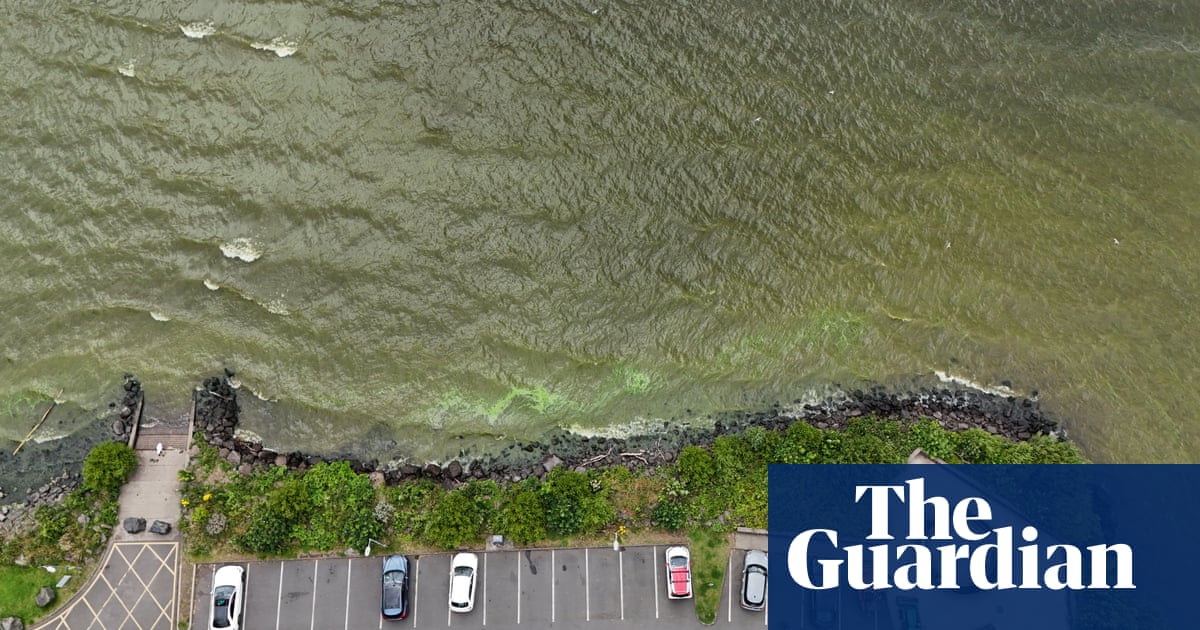In a shallow valley populated by reddening ancient oak trees, the River Avon snakes along quietly – the grind of Bristol unknowingly just metres away.
Despite the falling leaves and temperature, a group of women tentatively step into the 12.5C waters of the Conham River Park in the east of the city for a midday swim – a ritual they all insist is not just a hobby but a way of life.
Conham Bathing, an advocacy group made up of women in their 20s and 30s, has launched the Thriving Avon Charter in a move to raise the profile of rights for rivers.
The move is inspired by campaigners worldwide who have secured legal personhood or “rights of nature” for rivers such as the Whanganui in New Zealand, and in the UK with the Ouse in Lewes and the Dart in Dartmoor.
The group’s love for the river and fight for bathing water quality status has been captured in a feature-length documentary Rave On for the Avon, which after a preview run in the south-west may have a national cinema release mid-January.
As the film’s maker, Charlotte Sawyer, steps from the river after a swim in a brief rain shower, her teeth are chattering.
“I feel very alive,” she says. “You can go from screens to indoor heating, into cars and to traffic, here in Bristol its quite densely residential but in the river, you just feel like it’s real existence for your living.”

Sawyer says she used to be more of a fairweather swimmer but was converted after making the film and seeing the “manic look of elation” on the campaigners’ faces.
“When I started filming people trying to protect the river I thought I was filming people’s activities and their campaign work,” she says. “But in the end, what my film is about is people’s love of the river, how they feel loved back when they swim in it, walk next to it, engage with it, and how swimming in rivers is a way of life for all walks of life.”
Aggie Nyagari, 38, is a film-maker who worked with Sawyer on the film. She moved with her family across Bristol to be nearer to the park.
Coming originally from the warmer climes of Kenya, Nyagari says she was unsure at first about swimming in such cold water. But she overcame her concerns and started in the summer, allowing her to slowly acclimatise to the gradual temperature drop into the winter.
“It took us a year and a half to find the perfect location, we had to be within a 10-minute radius of the park so we could walk here,” she says. “In the end I got my dream and I swim here every morning.”
Since 2021 the group has been working to achieve designated bathing water status for the section of the Avon in the park. Part of the group’s advocacy includes them regularly testing the water and sending samples to Wessex Water.
In August 2024, the group recorded the worst water quality testing results for two consecutive weeks since the group began sampling. The bacterial levels were found to be between six and 20 times higher than the benchmark for what would be considered “poor” water quality under the Environment Agency’s inland bathing water guidelines.
The water quality does not deter the Conham Bathing swimmers from entering the river but the majority say they keep their head above the water.
after newsletter promotion
The founder of the group, Becca Blease, 35, a research impact specialist who lives in Horfield, said a significant focus of the campaign was about keeping people informed, emphasising that the ban on swimming in the river is ineffective and largely not enforced.

“There’s a huge community who adore this river,” says Blease. “They love to swim here. So a lot of it has just been about making sure that they are informed, because we don’t think that the current prohibitive approach works, because people will still swim.
“It’s a really natural thing on a hot day to just want to jump in and cool off. And outdoor swimming is only going to get more popular, I think. And so simply to ban it doesn’t work. People will still go in.”
A Wessex Water spokesperson said: “We support the greater use of rivers for recreation and have worked with the Conham Bathing group and others to provide data on water quality, helping people make an informed choice.
“Lowland rivers will always have bacteria in them from numerous sources. Specifically on the Bristol Avon, Environment Agency data indicates that storm overflows contribute to just 3% of the reasons that the catchment doesn’t achieve good ecological status – well below urban runoff (31%) and agriculture (25%).
“That said, we agree that storm overflows are outdated and we’re spending £3m every month to progressively improve them. This includes a recent project just upstream of Conham River Park in Hanham, where we’ve installed a below-ground storage tank to hold rainwater during heavy downpours.
“More widely, we believe rain should be valued as a resource and used and returned to the environment close to where it falls. Alongside our ongoing work, this requires the political understanding and will to bring forward policies that that promote best practice in rainwater management at source.”
The Thriving Avon Charter can be signed here.

.png) 2 months ago
21
2 months ago
21













































